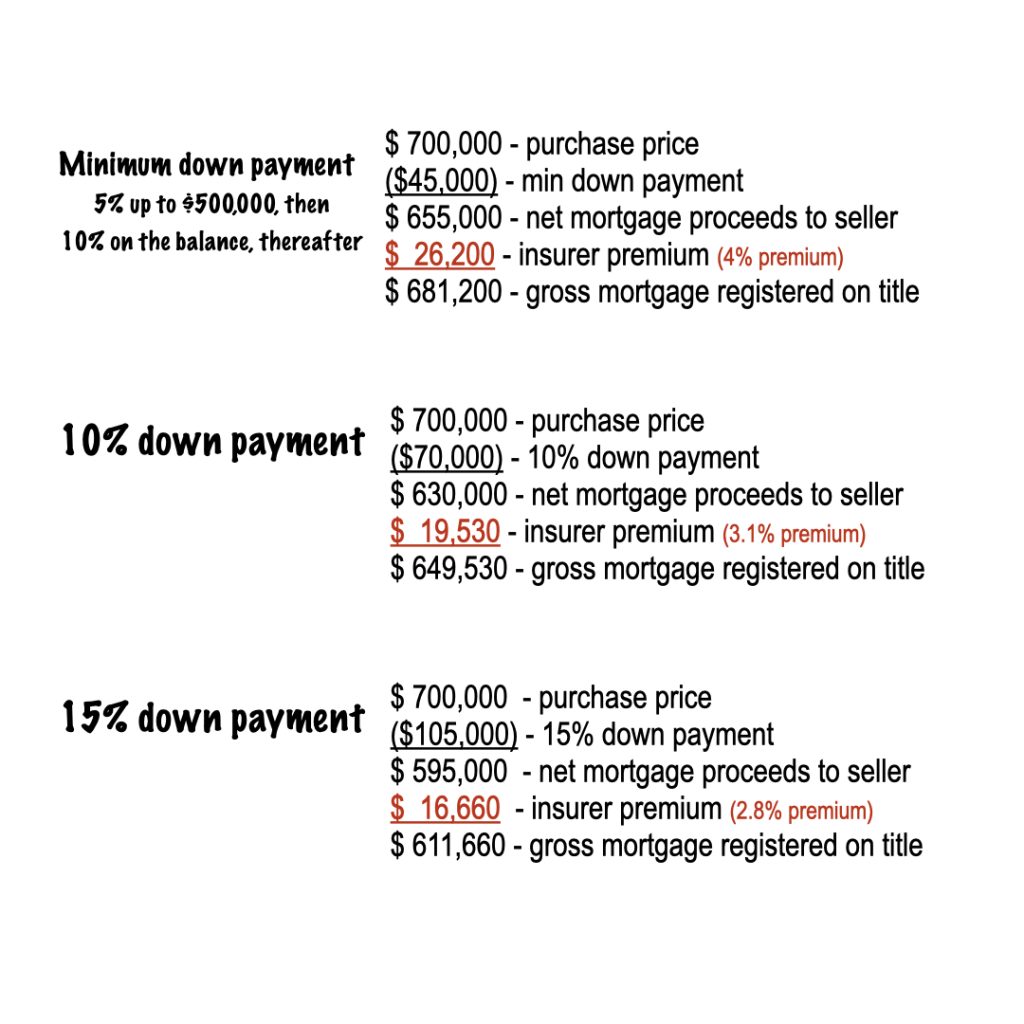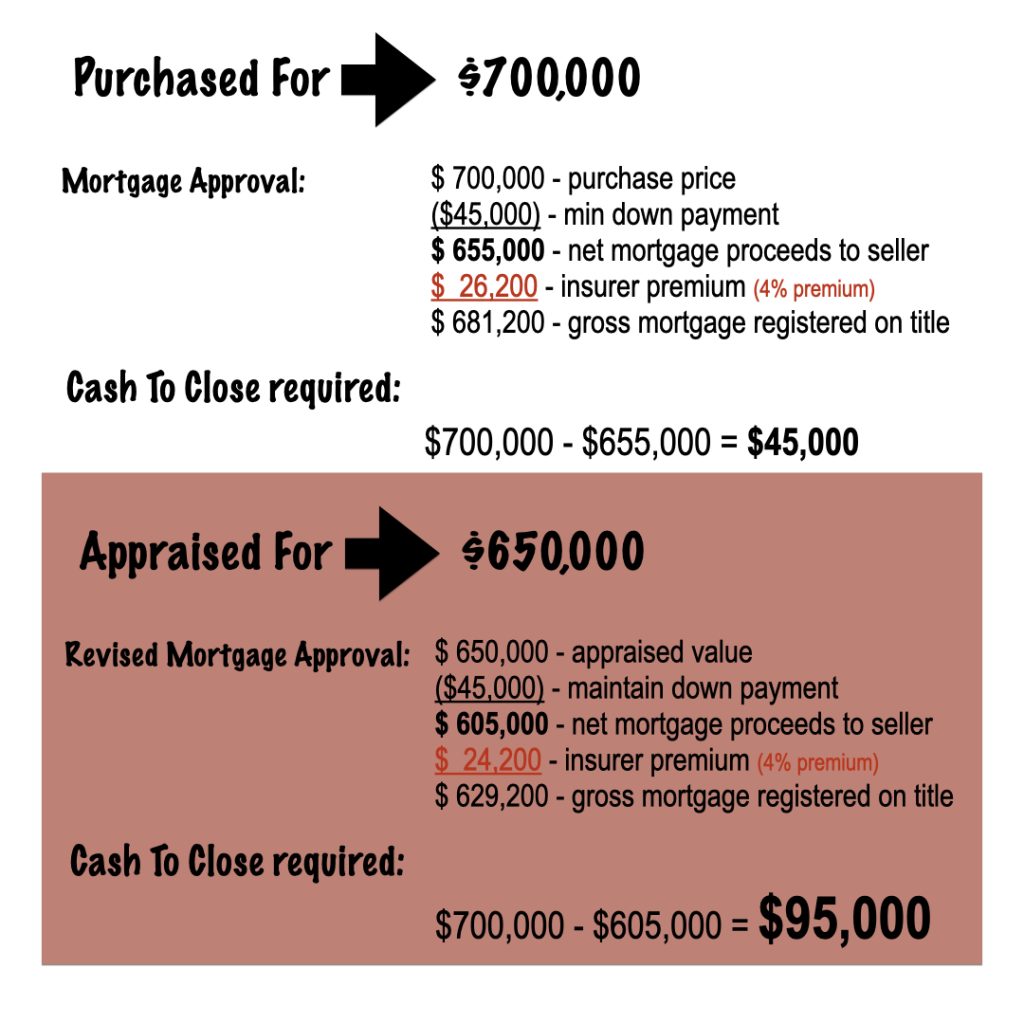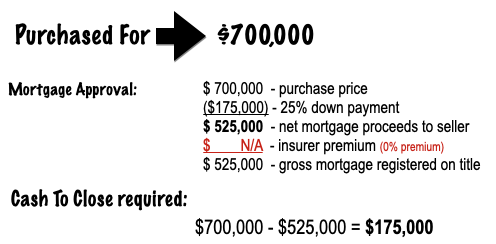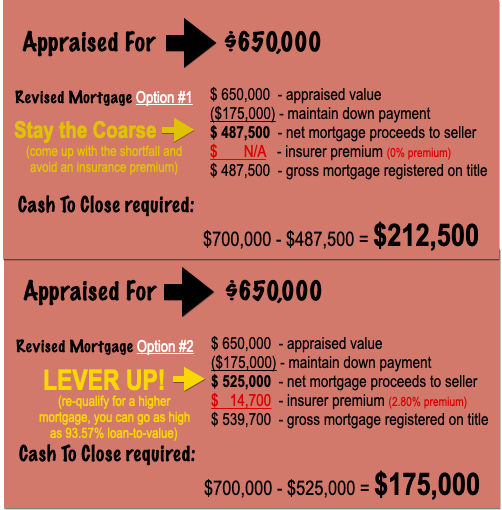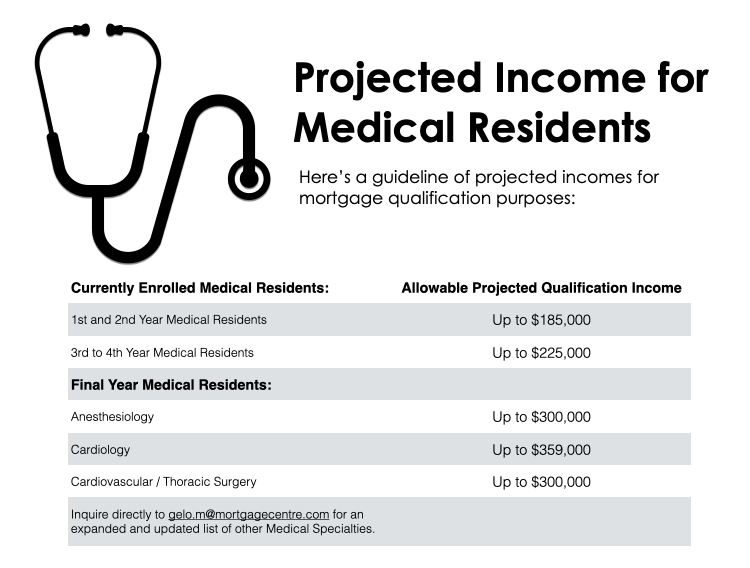(February 18, 2024)
Don’t want to miss out on the next blog post? Click Here to have future issues emailed directly to your inbox!
Securing a mortgage pre-approval marks a hopeful step toward homeownership. However, the path from pre-approval to finalizing financing conditions can be tricky. Overlooking key details during the pre-approval stage can turn a promising start into a declined application. This article explores common pitfalls, emphasizing the importance of addressing them early on to avoid the disappointment of a rejected mortgage application during the critical financing conditions period in a real estate purchase transaction.
Following are the most common qualification criteria that are often overlooked or under-prioritized in the pre-approval stages:
Down Payment Verification:
Lenders generally require proof that you have accumulated or had possession of your down payment proceeds for a period of 90 days. But where things get confusing is when applicants have frequently moved their funds from one bank account to another within a condensed time frame. This results in a tangled and very challenging interpretation of down payment verification for two main reasons:
- Copious amounts of document collection may be required as the funds travel from one bank account to another.
- Of all the bank statements provided to verify the tenure and whereabouts of your funds, if an unexplained deposit is identified that is greater than $2,000, a further 90-day verification will be required on that particular deposit. This is often the most overlooked thing when a mortgage broker or banker collects down payment verification documents during the pre-approval phase. A singular unverified down payment verification can turn a mortgage approval on its head and result in an 11th-hour crisis. In most cases, it’s just a major inconvenience as the applicant will have to provide further documentation, but where it could become a major/threatening issue is if the funds are sourced from a borrowing account (i.e., personal line of credit, credit card, loan, etc). If this is the case, the entire mortgage qualification needs to be re-qualified at a more demanding standard which often ends up in a crisis as the debt servicing ratios you qualified at will rise significantly in most cases. Moral of the story? Make sure none of your down payment sources are from another credit source (credit card, line of credit, etc), and if it is, disclose it to your mortgage broker from the onset to ensure it gets accounted for.
Property Taxes and Strata Fees:
Many applicants are unaware that annual property taxes and monthly strata fees factor into a mortgage qualification, and worse yet, many mortgage providers underestimate their value within the mortgage qualification. For example, if you’re pre-qualified for a $700,000 condo with an estimated monthly strata fee of $400 and an annual property tax figure of $1,500, this means that if you end up placing an offer on a property with a strata fee of $600 and a $1,900 property tax figure, you will exceed your allowable debt service ratios and slide into decline territory. Make sure your pre-approval accounts for strata fees and property tax, and more importantly, the values should be stated somewhere within your pre-approval document so you are completely aware of the limitations. Once you begin your property search and get a feel for price points, report back to your mortgage provider and request a tune-up for your pre-approval to reflect more accurate strata fees and property tax figures. This process of fine-tuning will ensure a more smooth and predictable outcome.
Condo Documents and Property Disclosure Statements:
Property deficiencies and non-structural condo/strata issues (financial and legal) are not accounted for in pre-approvals. With the property being the primary collateral source for a mortgage, lenders diligently review all documents associated with the current and past condition of the subject property. If a recent/current/evolving deficiency about the property is revealed within the strata/condo documents, a lender will analyze further to ensure that the future sale of the property is not impacted. If the lender is wary of the condition, they may request a larger down payment, or in some instances, outright decline the application based on the severity of the condition. Your mortgage provider must be aware of any property disclosure as they should immediately disclose it to the lender to ensure the condition complies with their (or the insurer’s) guidelines. In BC, a property disclosure statement is made available to prospective buyers that states any existing or past conditions with the property. Failure to disclose issues during the financing conditions period can leave you vulnerable to 11th-hour crises when lenders eventually discover critical items through their final funding checkers or closing legal providers. Avoid the getting-away-with-one mindset and be proactive and forthcoming if you feel that something may have been overlooked. The outcome will likely have far higher negative implications than any degree of benefit you may have received by not disclosing a potential issue.
New To Canada Intricacies:
The adaptation of provincial and federally mandated policies has made mortgage qualification for new Canadians extremely challenging and for many, prohibitive. The qualification criteria for temporary and permanent residents have remained the same for the past several years, but it is the implementation of the Foreign Buyer Tax and the Prohibition on the Purchase of Residential Property by Non-Canadians Act that have caused many seemingly standard purchase transactions to suddenly go sideways. Here’s what you need to know to avoid any pitfalls if you are a temporary or permanent resident purchasing a property in Canada: upon getting pre-approved for a mortgage, you must then get pre-approved for the right to purchase a property in Canada. As most mortgage providers have no idea about Foreign Buyer tax policies and prohibition legislation, make sure you suit up with a mortgage broker who is well versed about the policies and how they relate to mortgage qualification. Depending on which province you want to purchase in, the legislation varies accordingly. For British Columbia and Ontario: there are two legislations to be aware of that have specifically been drafted to SEVERELY DISCOURAGE Non-Canadian residents from purchasing real estate, they are:
- Foreign Buyer Tax – in BC the tax is 20%, in Ontario 25% (applicable to all temporary residents who purchase property)
- Prohibition on the Purchase of Residential Property by Non-Canadians Act – to be eligible for the purchase of a property, an applicant must have either been awarded their Permanent Residency or have at least 6 months of validity remaining on their work permit on the closing date of their purchase
Exemptions: Provincial nominee certificate recipients are essentially exempt from Foreign Buyer Tax in BC and Ontario (provided they fulfill the eligible exemption criteria). But when it comes to the Prohibition Act, it’s a different story, and this is where we have been seeing crises unfold with mortgage qualification. Many Provincial nominee recipients have been caught off guard by the expiration of their work permits upon being awarded the provincial nominee certificate. Understandably so, nominee recipients have been allowing their work permits to expire during their PR (Permanent Resident) application waiting period as their residency statuses automatically renew to an unspecified date until the PR application is approved. This automated renewal process is known as implied status and allows the nominee to continue employment and residence in Canada while their PR application goes through the process. However, when it comes to Canada’s banks, the implied status doesn’t appear to hold too much weight. Lenders continue to request a copy of the applicant’s work permit to fulfill the 6-month condition of validity as per the Prohibition on the Purchase of Residential Property by Non-Canadians Act. Even with their transitionary implied status, lenders are still requesting formal work permits. This has become a major deal breaker as almost every nominee recipient hasn’t renewed their work permit knowing that they can proceed as they are with an implied status, and by the time they realize that a formal work permit is required to remain compliant as per the Prohibition Act, it’s too late. The queue for work permit renewals is not a transactional type of process. Like most government programs, it’s a simple application process, but the servicing and completion process is lengthy and unreliable, thereby leaving nominee recipients in compromised positions as their completion date approaches. There are alternative financing scenarios, but they are costly (higher interest rates and fees). Please note that there are additional exemptions not mentioned in the post: For BC Foreign Buyer Tax exemptions, click here. For Ontario Foreign Buyer Tax exemptions, click here. For Prohibition on the Purchase of Residential Property by Non-Canadians Act exemptions, click here.
Need further clarification on any of the above? Call or text Marko Gelo right now at 604-800-9593, or Click Here to schedule a free, no-obligation phone call with Marko. You can also call Marko on WhatsApp.
Don’t want to miss out on the next blog post? Click Here to have future issues emailed directly to your inbox!
Contact Marko, he’s a Mortgage Broker!
604-800-9593 cell/text | Vancouver (Click Here to schedule a call with Marko!)
403-606-3751 cell only | Calgary (Click Here to schedule a call with Marko!)
Email: gelo.m@mortgagecentre.com
@markogelo (Twitter)


